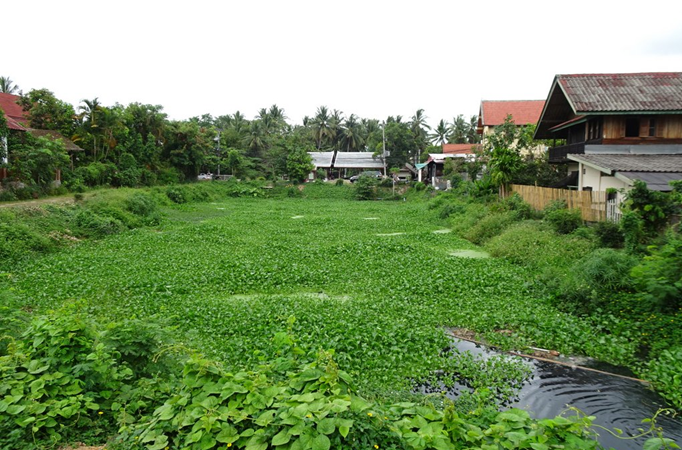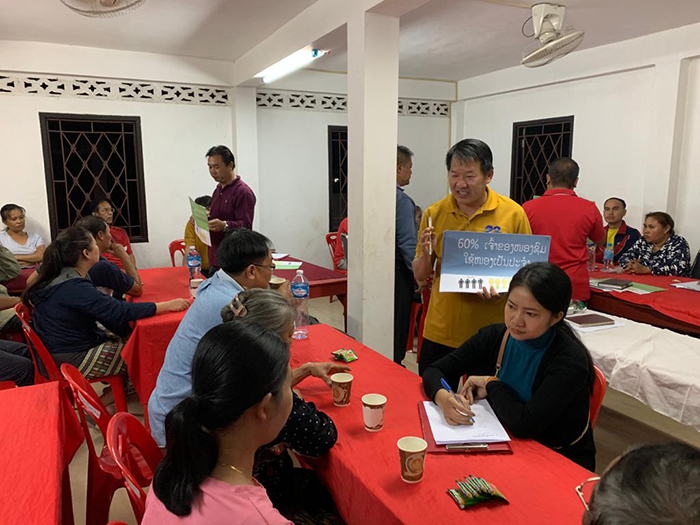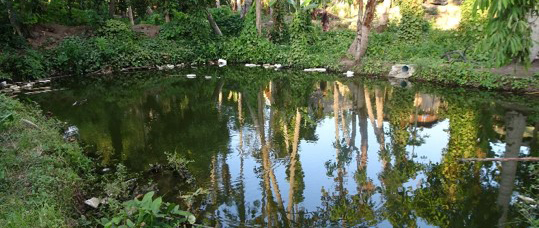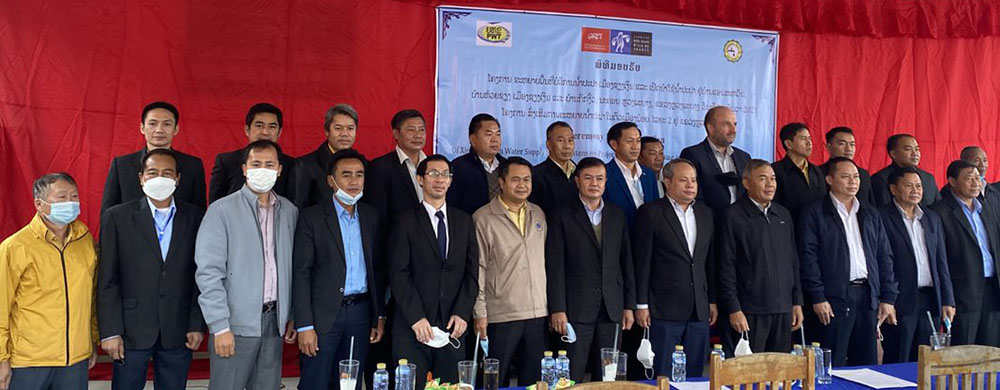Following the signature of a Programme agreement with Agence française de développement (AFD) in 2019, GRET began to consider a commons-based approach in a dozen of its projects. Throughout the year, we have been showcasing these projects, which focus on a variety of subject areas. In this issue: the Wise project in Laos.
Urban ponds in the city of Luang Prabang are one of the reasons it is listed as a UNESCO World Heritage site. In order to restore and enhance these wet zones made up of 29 ponds in the Ban Mano and Ban Phongkam neighbourhoods at the heart of the city, the Wise project (Wetlands improvement and Sanitation Enhancement) was launched at the end of 2019 for a period of 30 months. These ponds provide important services to 200 neighbouring households and pond owners and contribute to flood risk mitigation, adaptation to climate change, and aquaculture and fish farming activities. However, although they are protected by strict regulation, the ponds are deteriorating and under threat from wastewater discharge, dumping of solid waste, proliferation of invasive plants and land pressure that drives some owners to fill them in.

Theoretically, several stakeholders are responsible for managing the Luang Prabang ponds. At municipal level, the department of heritage is in charge of applying regulation in the listed zone, the office of urban services is responsible for development of the zone, and the department of natural resources and the environment ensures monitoring of water quality. Owners are responsible for upkeeping their own ponds, with the exception of one pond which is public property and which is maintained by the village committee. However, lack of resources to enforce regulation and of forums for dialogue between the various stakeholders are currently hindering effective management of ponds. Local residents, who contribute to degradation of the zone, are also affected by direct nuisance generated by the situation: unhygienic sanitation, proliferation of mosquitoes, brackish water, etc.
In light of this, the Wise project is taking a commons-based approach to identify blockages and possible solutions to improve upkeep and protection of the wet zone. In order to have residents, pond owners and local authorities contribute to improvement of the situation, a participative process was initiated. Firstly, use and perception of the ponds by residents were analysed via surveys of households, and a detailed inventory was carried out to accurately describe conditions of use and the state of each pond. In order to test the conclusions of these investigations from the residents’ point of view and encourage their participation, workshops presenting findings and group discussions were organised. These collective discussions, facilitated by the project team and local partners, also made it possible to propose the idea of participative governance of ponds to the residents and to assess their motivation to commit to this approach.

The next stage of this participative process will aim to support the various stakeholders involved in the management and conservation of this common good, particularly via role play, which makes it easier to understand the roles and responsibilities of all involved, and to highlight the benefits that would result from proper management of ponds, such as the development of income-generating activities, improvement of the environment, better adaptation to flood risks, etc.
Ultimately, the objective is to set up a participative management committee in charge of co-designing actions to restore the ponds and ensure their upkeep and protection.




